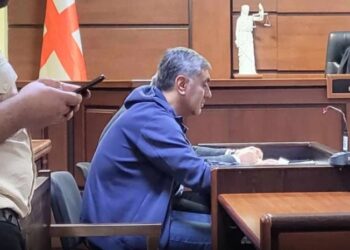The European Court of Human Rights has begun consideration of a complaint filed by non-governmental and media organizations regarding the “Russian Law”.
The Georgian Young Lawyers Association reports that the court has accepted the case for consideration in relation to all articles.
“The European Court of Human Rights informed us that it has begun consideration of the complaint filed against the “Russian Law” and has asked the state relevant questions. The court has accepted the case for consideration in relation to all articles.
As is known to the public, on October 17, 2024, 16 media organizations, 120 non-governmental organizations and 4 individuals appealed to the European Court of Human Rights with a complaint regarding the “Russian Law” and the severe consequences it has caused.
The complaint states that the “Russian law” violates the rights protected by the European Convention on Human Rights to freedom of association (Article 11), freedom of expression (Article 10), the right to respect for private and family life (Article 8), non-discrimination (Article 14), the right to an effective remedy (Article 13), and the scope of restrictions on rights (Article 18).
The court may grant the case the status of a case with “significant impact.” Such status is granted to cases that concern exceptionally important issues of human rights protection.
After the complaint was filed, the persecution of civil society continued and intensified. The re-initiation of the translation of FARA is also part of the ongoing policy of the Georgian Dream. The law in force in the US does not oppose the activities of independent NGOs or free media, while the Georgian Dream wants to disguise the “Russian law” with this act. The decisions of the European Court of Human Rights (Kobaliya and Others v. Russia, No. 39446/16 and 106 others) (Ecodefence and Others v. Russia, Nos. 9988/13 and 60 others) clearly confirm how restrictive laws on civil society are used to suppress independent voices in the country, which is characteristic of authoritarian regimes.
It is worth noting that from the day the case was sent, the Georgian Dream’s propaganda claimed that the case had not been sent. Later, when we published an extract from the postal message, the propaganda media outlets began to claim that the court’s signature was not visible on it. After the case was registered, the propaganda media outlets continued to mislead the public by manipulating various procedural issues. High-ranking officials continue to stigmatize civil society and attach insulting labels to it.
The ‘Russian law’ not only restricts civil society and the media, but also serves to isolate citizens from each other and suppress critical voices. The legal struggle against Russian laws and censorship will end with the victory of the Georgian people,” reads the information.














